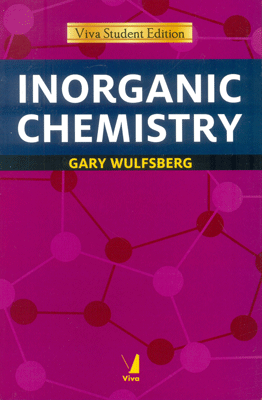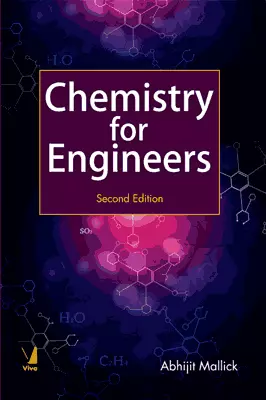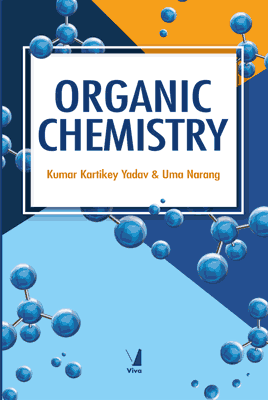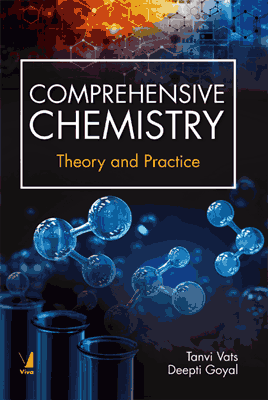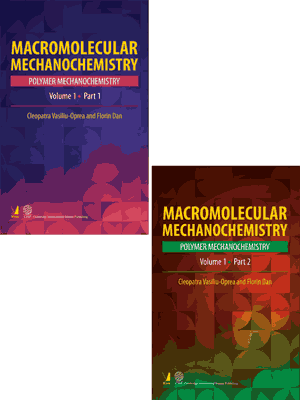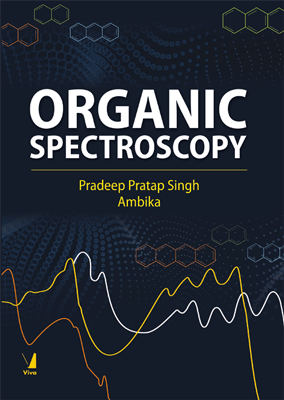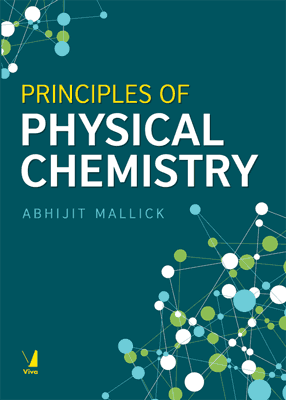Inorganic Chemistry
Inorganic Chemistry
₹715.50 ₹795.00 Save: ₹79.50 (10%)
Go to cartISBN: 9788130915852
Bind: Paperback
Year: 2018
Pages: 1008
Size: 159 x 242 mm
Publisher: University Science Books
Published in India by: Viva Books
Exclusive Distributors: Viva Books
Sales Territory: India, Nepal, Pakistan, Bangladesh, Sri Lanka
Reviews:
"An attractive feature is the extent to which the author relates inorganic chemistry to other areas.... Wulfsberg offers an original and engaging perspective on inorganic chemistry."
—Journal of Chemical Education
"Wulfsberg's text introduces the key concepts of inorganic chemistry in the way that most students want to see them (and that they were developed) ??? as empirical observations. Once the observations are mastered, the text moves to a discussion of the theoretical model (or models) consistent with the observations. Bioinorganic and environmental applications of inorganic chemistry are brought in at the point that they are appropriate. This is a stimulating text, and one that warrants serious consideration for adoption."
—James Penner-Hahn, University of Michigan
Description:
Wulfsberg's new Inorganic Chemistry is ideal for use as the primary textbook in the junior-, senior- and introductory graduate-level sequence of inorganic chemistry courses. With a clear descriptive approach that seamlessly integrates bioinorganic, environmental, geological, and medicinal material into each chapter, there is much to like about this contemporary text. Also refreshing is an empirical approach to problems in which the text emphasizes observations before moving on to theoretical models. Because Part I of the book explains chemical concepts and reactions using Valence Bond theory, it may be used by students who have not had physical chemistry; thus Part I of the book is also recommended for use in a one-semester introductory course. Part II covers all traditional topics of an advanced inorganic course for chemistry majors including symmetry, molecular orbital theory, transition metal chemistry, organometallic chemistry, inorganic materials and mechanisms, and bioinorganic chemistry.
Contents:
Part I: Inorganic ions and simple molecules in chemistry and in our environment: Periodic trends in fundamental properties of atoms and simple ions • Monoatomic ions and their acid-base reactivity • Polyatomic ions and their acid-base properties with applications to environmental chemistry and analytical chemistry • Ionic solids and precipitation reactions of Hydrated ions with applications to analytical chemistry, organic chemistry, and water chemistry • Trends in coordination equilibria with applications to biochemistry, environmental chemistry, geochemistry, and medical chemistry • Principles of Oxidation-reduction reactivity with applications to chemical safety, environmental chemistry, and industrial chemistry • Thermochemical analyses of reactivity trends • Introduction to transition metal complexes with applications to biochemistry • Part II: Inorganic molecules and materials: Theory and applications: Symmetry with applications to art, environmental chemistry and organic chemistry • Molecular orbital theory with applications to organic chemistry and materials science • Organometallic chemistry of the d-Block elements with applications to industrial chemistry, organic chemistry, biochemistry and environmental chemistry • The elements and their physical properties with applications to materials science • Oxides of the elements with applications to geochemistry, environmental chemistry, and materials science • The halides, nitrides, and sulfides of the elements with applications to materials science and biochemistry • Hydrides, alkyls, and aryls of the elements with applications to materials science and organic chemistry • Inorganic reaction mechanisms with applications to materials science, organic chemistry, environmental chemistry, and biochemistry • Advances topics: excited electronic state, photochemistry, and activated molecules with applications to materials science, atmospheric chemistry, and biochemistry • Appendix A: Discovery laboratory experiments for Part I • Appendix B: Character tables • Index
Target Audience:
Students of Chemistry.
